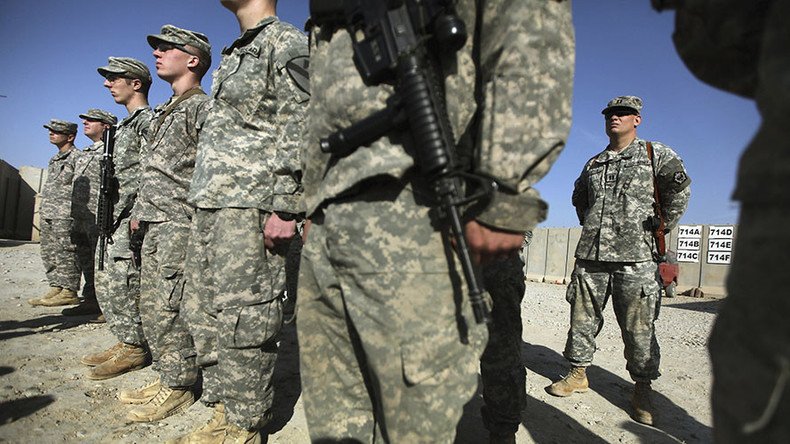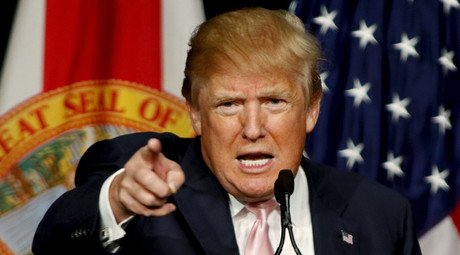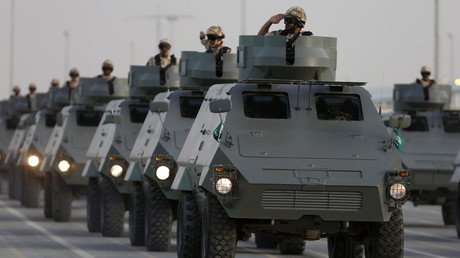Arabs and democracy, a tale of two tragedies

The question triggered by the Arab uprisings of 2011 was always: why did it take so long?
It appeared that for all its resources, both human and material, the Arab world was struggling to extract itself from the vicious cycle of authoritarian rule that would force so many into exile and consequently lose its human potential for emancipation.
While many nascent Arab states concentrated their initial nation building efforts on developing efficient social programs, other aspects were neglected. Centralized governments meant that expectations of accountability that arise from public participation in the political discourse were absent.
The urgency, for most countries, was extracting peoples from the abject poverty into which colonialism had thrust them into.
Free and fair elections and an independent media were seen as secondary to the primary objectives of the new Arab nations.
Outside of the Arab world, this absence of 'democracy' was seen as an alarming trend.
Of course the prism through which the Arab world was viewed was always a Western one and the benchmark was and remains, Western democracy: A system of governance that was adopted by Western nations, often after bitter civil wars and revolutions which would result in regimes that would eventually offer a sense of equality to its citizens.
In the aftermath of decolonization, however, the challenges facing Arab governments were numerous. Levels of illiteracy were high as colonial rule objected to the education of its oppressed subjects.
In order to rapidly bridge the growing gap between the Arab world and other nations, promising youths would be sent to study abroad, mainly in Western capitals, in a bid to bring back the competence that was lacking in the homelands.
This resulted in an entire generation of Arab elite men and women returning with the necessary knowledge, albeit with a very Eurocentric vision of the nation-state and what it should look like.
Many, lured by the prospect of better employment opportunities, remained in their newly adopted countries. Those who returned came back fiercely critical of the states they were now invited to serve.
There was and remains a strong case for improvement in many if not all Arab countries, to this day crippled by nepotism and cronyism as well as worrying levels of corruption. But what the new elite failed to grasp was the necessity to provide an Arab solution to an Arab malady.
Rather than develop systems of governance with Arab specificities in mind, many of these Western educated elites simply believed that aping Western models would provide the much needed solutions.
The reality is that what applies to Paris does not necessarily fit Tripoli, just as what suits Cairo would be unthinkable for London.
This one democracy-fits-all approach meant that the natural inclinations of Arab societies were suffocated and expected to be absorbed into systems that were only starting to work in a Europe that took centuries to evolve into the democratic model of the 20th century.
The systems implemented were therefore forcefully pushed against peoples expected to run, long before they even mastered the art of walking.
In this schizophrenic atmosphere, newly emerging movements were rapidly providing a solution that appeared much more appealing and suited to the aspiration of the ordinary Arab.
Unable to offer any answers to the growing tensions in these countries, Islamists through organizations such as the Muslim Brotherhood, appeared to have the key.
The Arab world was formed through Islamic conquest, and even if the region is the birthplace of the Christian faith and includes notable Christian communities, Islam is intimately linked to Arab identity. Therefore rather than pushing for Capitalism or Socialism, the only obvious options, Islam as system of governance, emerged as a credible alternative.
In those early days, the Islamist narrative was attractive enough. It appeared to provide the ideal halfway house for the new developing states.
Their conservative discourse however, was in stark contrast to the one, now actively promoted by the 'Western elites' who were advocating the implementation of more and more alien models into what remained deeply traditional societies.
The theater for these ongoing clashes was the Arab nation, the arbiter was the Arab government.
In a bid to appease both strands of society, increasingly at odds, governments would alternatively concede on one point, to one group, then the other. Each concession was seen as a betrayal of the fundamentals of the state by the opposing side.
Concessions to the Islamists were interpreted as surrendering to 'archaic religious groups' while those to the other side were dismissed as re-introducing the laws of the former colonialists.
Ironically, while both strands had been critical of colonialism and recognized its devastating effects, both would still turn to their former colonial masters for help in organizing against their governments.
This in turn would foster the firmly held belief that there was a 'foreign hand' looking to foment discord in Arab lands.
Both these groups would in turn prove to be god sends for Western capitals keen to retain their influence on their former colonies.
As resource-rich nations these Arab countries would prove easier to influence should they face constant turmoil, which in turn, would mean their resources would be their only currency to maintain the calm.
Resources which would only be traded along Western capitals' agreed terms.
Oil and the desert
Oil constitutes the backbone of the global economy. Houses and businesses are heated thanks to it and the vital goods that ensure prosperity and the maintaining of strong competitive markets, are transported thanks to the precious liquid.
High oil prices affect the quality of life of every single Westerner, it becomes therefore imperative to keep its costs low.
A turbulent region means it has neither the inclination nor the energy to regulate the market to its advantage.
On top of civil strife that surface regularly, internecine clashes between Arab states, are encouraged in order to avoid a cohesive resource policy.
Western Europe remained deeply scarred by the oil crisis of the early 70's which saw a concerted effort by Arab nations to sell the precious commodity at advantageous prices.
This Arab unity was a disaster for outside economies hugely dependent on Arab oil and it became imperative to ensure this would never happen again.
The 'Western elites' educated in the best universities of London, Paris or Washington were now actively rooting for models of governance similar to those of the West.
Just like a generation of Soviet Russians could not resist the allure of the Coca Cola or the Levi's jeans and traded the job and housing security of socialism for a taste of the benefits of Western influence, so too were Arab youth looking to Western models as increasingly attractive.
This, however, was a generation that would see the benefits of one system yet remain blind to its pitfalls.
In less than 20 years, Arab nations almost eradicated illiteracy and countries such as Iraq, Syria or Algeria boasted the highest levels of literacy in the world by the 1980's.
Foreign NGOs and governments on the other hand were actively promoting one group or the other, which was increasingly leading to social tensions. Consequently this would force governments into heightened states of paranoia where the 'foreign hand' was seen in all social uprisings.
Many of course were perfectly legitimate appeals for change, yet in a climate of constant foreign meddling, Arab governments became inward looking and brutally cracked down on dissent.
In turn, activist would turn to foreign powers to vent their frustrations. This vicious circle of implicating foreign powers and denouncing the governments' critique of foreign meddling made for a tense situation that by 2011 came to a head.
When Tunisian market street vendor Mohamed Bouazzizi set himself alight after suffering yet another humiliating police arrest at the hands of a distant and paranoid security apparatus, Tunisia was already at the boiling point.
There was no going back and only all out revolt would be the solution. The natural successor to the autocratic ousted ruler was an Islamist who'd returned from a 20 year-long exile in none other than Britain.
When the secular forces in Tunisia decided that his rule was contrary to the 'democratic' aspirations they'd hoped for, the Islamists of Ennahda would eventually be replaced by the secular state apparatchik Beji Caid Essebsi.
Tunisians are now the proud recipients of the very Western-approved Nobel peace prize.
There are still lessons that must be learned.
It appears that 'Plus ca change' is the only order of the Arab day.
The statements, views and opinions expressed in this column are solely those of the author and do not necessarily represent those of RT.
















